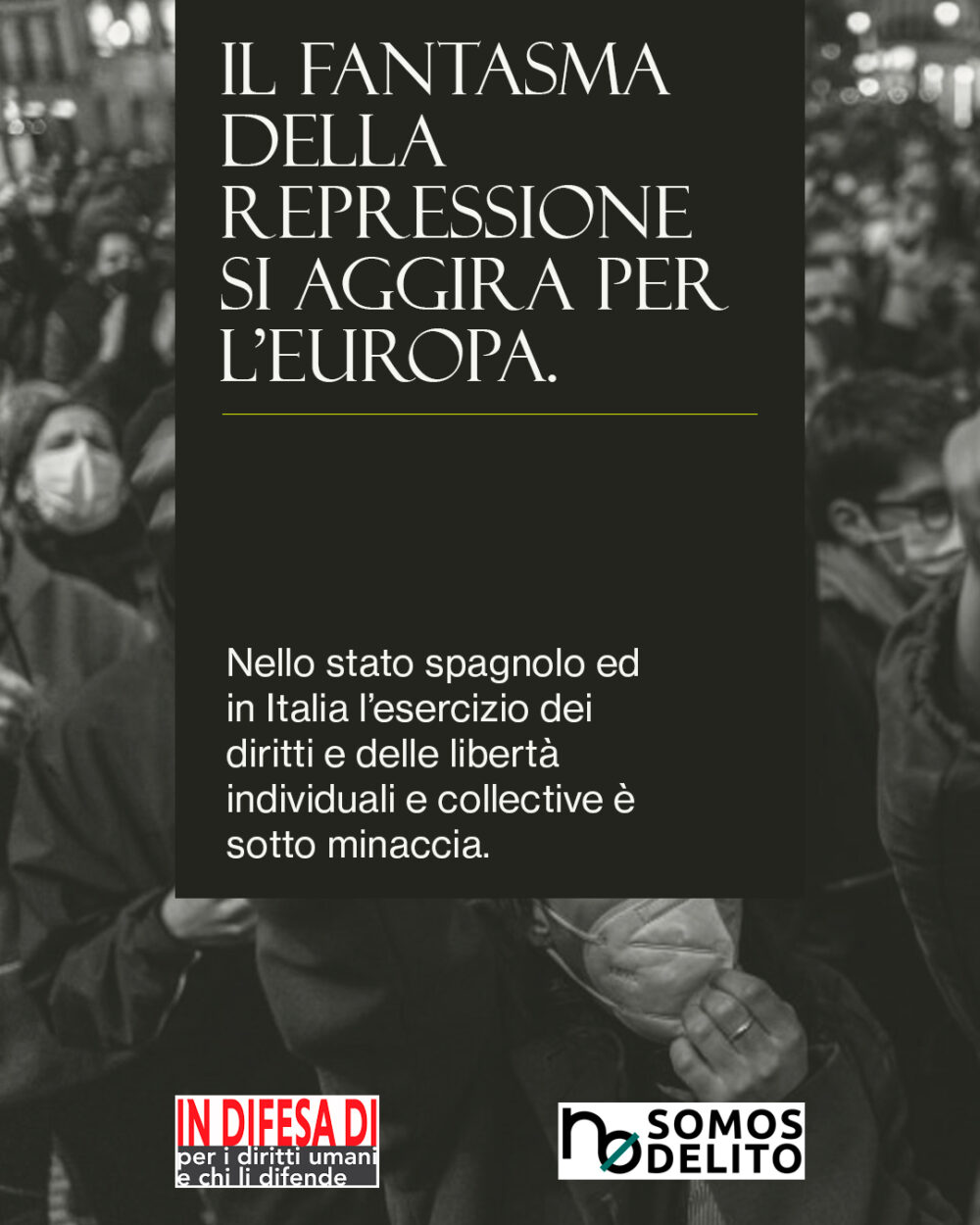MANIFESTO | The specter of repression is haunting Europe

You can download the manifesto in English here.
Ten years ago, in response to growing social mobilization, the Spanish government passed the Citizen Security Law, widely known as the Gag Law, due to its repressive nature and its restrictive impact on fundamental rights. Despite the Socialist Party’s stated intention to reform it and several parliamentary attempts, the law remains in force and continues to be used to curtail freedoms.
Today, Italy finds itself in a similar situation. On 11 June, Giorgia Meloni’s right-wing government forced the final parliamentary approval of the ‘Security Law’. Like the Gag Law, this law threatens both individual and collective freedoms. In response to this wave of repression sweeping across Europe, civil society is uniting to defend freedoms and democracy.
Ten years on, it is clear that the Gag Law has been used to suppress fundamental freedoms, including those of expression, assembly, association, and information. It has criminalised individuals at the forefront of social movements—housing activists, environmental defenders, Catalan pro-independence campaigners, Palestine solidarity groups, feminists, and trade unionists. The law has also disproportionately targeted racialised people, migrants, and refugees, many of whom have been fined, detained, or expelled for peacefully exercising their rights.
Since the law came into effect, more than 429,000 sanctions have been imposed. Over 76% were for offences such as “resistance,” “disobedience,” “refusal to identify oneself,” or “disrespect for authority.” These figures reveal an arbitrary system of sanctions that expands police discretion and creates a chilling effect, discouraging and silencing those seeking to exercise their right to protest.
Italy now faces a similar threat. Decree 1236 was finally approved by the Italian Senate following a vote of confidence. It aims to criminalise and restrict the right to protest by introducing repressive measures targeting migrants and various forms of mobilisation and expression by social movements. From the outset, it was clear that this law would be the “greatest assault on the right to protest” in decades. Several international institutions, including the Council of Europe, UN special rapporteurs and OSCE-ODIHR, expressed their criticisms and concerns. Rushed through without proper parliamentary procedure, the law mirrors the punitive logic of the Gag Law by introducing vague offences and disproportionate sanctions against legitimate actions such as roadblocks, peaceful occupations, and acts of civil disobedience. On 31 May, hundreds of thousands of people demonstrated across Italy to reject the decree and prevent outcomes like those seen in Spain. In both cases, the mobilisations have revealed broad, diverse, and majority-backed social opposition to these repressive laws.
The Spanish case demonstrates how difficult it is to overturn restrictive laws on rights, even in the face of repeated denunciations by international bodies such as UN rapporteurs, the Venice Commission, and the Council of Europe’s Commissioner for Human Rights, as well as changes in government and favourable parliamentary majorities.
We want to prevent a scenario we already know all too well: resisting the law in Italy and the continued enforcement of the Gag Law in Spain. These laws activate the state’s repressive apparatus and criminalise social movements. As members of civil society, we are building alliances to expose how governments resort to restrictive legislation to demobilise and repress dissent, thereby undermining democratic values. The work of collectives and movements that challenge these laws is crucial in resisting isolation and censorship.
They may persecute us for exercising our rights, but we will not stop —we will keep defending them and building solidarity.
